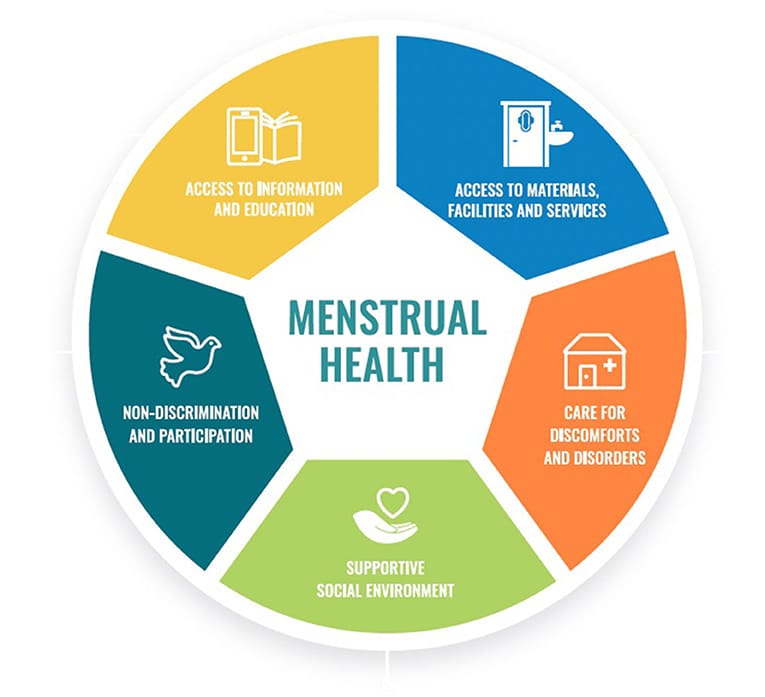“INSPIRE HER” Calls For Introduction Of Comprehensive National Menstrual Health Policy In Ghana

The Non-Governmental Organization “INSPIRE HER” is fervently advocating for the introduction of a Comprehensive National Policy on Menstrual Health Management in Ghana.
The Executive Director, Madam Sandra Boakye, has emphasized the urgent need for a cohesive national policy on menstrual health.
She stressed the importance of clear guidelines covering education, accessibility, production, distribution, and pricing of menstrual products.
Madam Boakye passionately urged the government to prioritize menstrual health, highlighting its significant impact on various aspects of human development, including education, health, the economy, the environment, and the attainment of Sustainable Development Goals (SDGs).
Additionally, there is a clear need for inclusive menstrual health education, especially for Persons With Disabilities (PWDs), as the current educational materials are not designed to accommodate the needs of the blind and deaf.
Madam Boakye also raised concerns about period poverty among PWDs and underscored the importance of integrating tailored components for them in educational programs.

The organization seeks support to provide inclusive education and menstrual products for PWDs, demonstrating its commitment to fostering positive change in this crucial area.
Furthermore, the World Bank emphasizes in its policy document “Menstrual Health and Hygiene” that when girls and women have access to safe and affordable sanitary materials, they decrease their risk of infections, thereby impacting overall sexual and reproductive health, including reducing teen pregnancy, maternal outcomes, and fertility.
Mr. Justice Lee Adoboe, the National Coordinator of Ghana WASH Journalists Network “GWJN”, highlighted the serious health risks posed by poor menstrual hygiene, such as reproductive and urinary tract infections, which can lead to future infertility and birth complications.
He emphasized that neglecting to wash hands after changing menstrual products can spread infections, such as hepatitis B and thrush.
Mr. Adoboe stressed the importance of the media playing an advocacy role on menstrual hygiene, from providing appropriate improved sanitation facilities for the girl child at school, at home, and in faith communities (church and mosque) to ensuring that girls are well-informed about the stages of their lives and educating males and society as a whole on supporting females in these relevant aspects of life.
These issues were discussed during a workshop training for trainers for journalists organized by World Vision Ghana in collaboration with Ghana WASH Journalists Network and M-CODe.
The training workshop was held on Thursday 20, June 2024 in the Ada Constituency of the Greater Accra Region.





